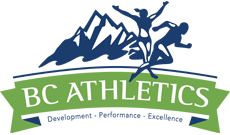Ready to Watch the Paralympics?
With the Paralympics beginnig this week, we have been educating ourselves on the unique features of Para Athletics so we can be informed and inspired as we watch our Canadian Para Athletes in Tokyo. Here is what we learned!
What is Para Athletics?
Open to male and female athletes in all eligible impairment groups, Para athletics offers a wide range of competition opportunities to Para Track and Field athletes.
This includes the Paralympic Games which are held every four years.
Events
Track events: 100m, 200m, 400m, 800m, 1500m, 5,000m, 10,000m, 4x100m
Road event: Marathon
Jumping events: High Jump and Long Jump
Throwing events: Discus, Shot Put, Club Throw and Javelin
Events are available for physical impairments (both seated and standing), athletes with vision impairments, as well as those with intellectual impairments.
At the grass roots and domestic level there are more event groups available for each sport class.
Two main groups:
Para Ambulatory – athletes who compete standing
Wheelchair Racing & Seated Throws – athletes who compete seated
Within these divisions athletes will compete in different classes
Classification
Classification is the system that “determines which athletes are eligible to compete in a sport and how athletes are grouped together for competition.
This, to a certain extent, is similar to grouping athletes by age, gender or weight” (International Paralympic Committee).
Para Athletics is divided into different sport classes to facilitate fair competition.
Each competitors sport class is determined based on an evaluation process by classifiers with expert qualifications from medical, motor function and sport specific perspectives.
Track sport classes are expressed by the letter T followed by a two-digit number.
Field sport classes are expressed by the letter F followed by a two-digit number.
Classes are divided in terms of type (indicated by the first digit) and level of impairment. In general, the lower the second digit, the higher the level of impairment.
Ex: T47 or F20
Rules
The rules of Para Athletics are almost identical to those of its Athletics counterparts.
Allowances are made to accommodate certain impairments (for example, blind and visually impaired runners may compete supported by guide runners attached to them by a tether at the wrist).
Language
Para as in "parallel." Meaning Para Athletics is in parallel to athletics.
Difference between Para Athletes and Paralympians:
Anyone with a disability can be a Para Athlete, only those that attend the Paralympics are Paralympians
Disability vs. Impairment
Impairment determines classification, not their disability
Disability: Implies a social component and is a general umbrella term. A person’s disability may or may not be caused by an impairment.
Disability can be related to conditions that are present at birth or acquired later in life and may affect functions later in life, including cognition (memory, learning, and understanding), mobility (moving around in the environment), vision, hearing, behavior, and other areas.
A person may have a disability but not be eligible to compete in Paralympic Sport, including Para Athletics.
Impairment: Refers more to the medical condition that affects one’s function and ability to do certain activities or how they interact with the world around them.
An impairment in body structures and functions impacts one’s ability or function in sport-related movements such as running, jumping, throwing or wheeling.
Able-bodied: Used to described non-disabled persons or may be used in reference to an Olympic-stream sport (i.e., able-bodied club, able-bodied track and field).
Avoid using words like mainstream or normal when referring to the counterpart of Para sport.
History
Para Athletics has been part of the Paralympic Games since 1960 and is governed by the International Paralympic Committee (IPC) Athletics Canada is the National Sport Organization (NSO).
Learn more by watching “Rising Phoenix” on Netflix.








